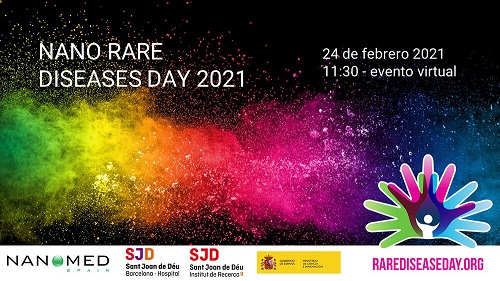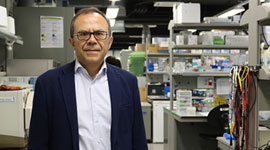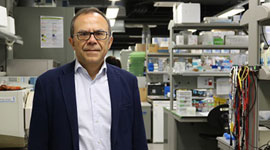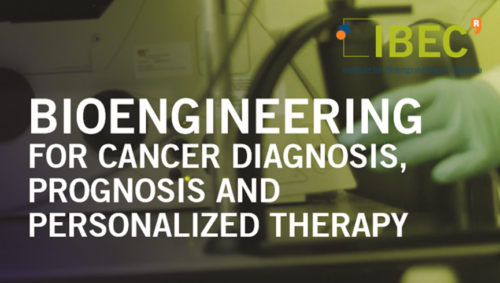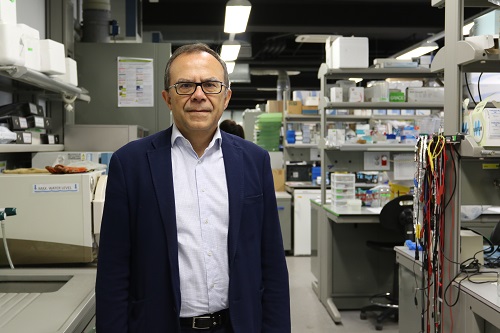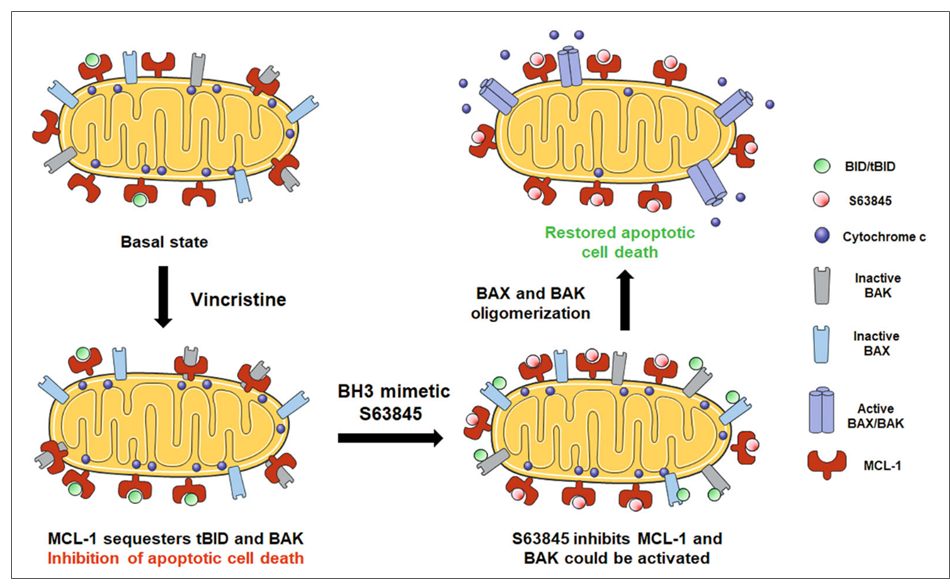Josep Samitier
Group leader
Innovation and talent with Josep Samitier
The debate organized by “Barcelona Tribuna” about innovation, talent management and scientific research in Barcelona will have the participation of Josep Samitier, director of the Institute for Bioengineering of Catalonia (IBEC).
Josep Samitier “A country that invests in science will have more welfare opportunities”
Josep Samitier, director of the Institute for Bioengineering of Catalonia and president of ACER, speaks in various media about the lack of public investment in research.
“Bioengineering against cancer” event brings together 400 international experts
The event “Bioengineering and MedTech against Cancer” organized by IBEC and Medicen Paris Region brought together more than 400 participants, Medtech and Biotech players fighting against cancer.
Great success of the 13th IBEC Symposium
The Institute for Bioengineering of Catalonia (IBEC) organized from the 27th to the 28th October its 13th Symposium. The event, that this year took place for the first time online, was focused on Bioengineering for Future & Precision Medicine. With more than 400 registered attendees, 18 flash presentations and 106 posters, the event also counted with contributions from top international speakers such as Robert Langer from the MIT, Ada Cavalcanti of the University of Heidelberg or Raquel Yotti, Director of the Carlos III Health Institute, among others.
IBEC participates in a roundtable on international collaboration in biotechnology
The Institute for Bioengineering of Catalonia participates in a roundtable on international collaboration in the field of biotechnology, as one of the main players in research and innovation applied to health.
Imaginenano Online 2020
Imaginenano2020 Online Imaginenano2020 organisers have been closely monitoring global developments of the COVID-19 virus since the start of the year. The health and safety of our speakers, exhibitors, participants and … Read more
Josep Samitier talks about the reallocation of the research funds
Josep Samitier, director of IBEC and president of ACER, the association of Catalan research centers, talks in an interview at the “Ara” newspaper about the reallocation of funds.
New method could help to find the best treatment for a pediatric cancer
A study led by IBEC researchers from the Nanobioengineering group, uses a functional predictive biomarker to anticipate the effect of treatments against rhabdomyosarcoma, the most common soft-tissue cancer affecting childhood and adolescence.
This advance can help in predicting treatment efficiency thus, avoiding tumor resistance and decreasing undesired secondary effects.

